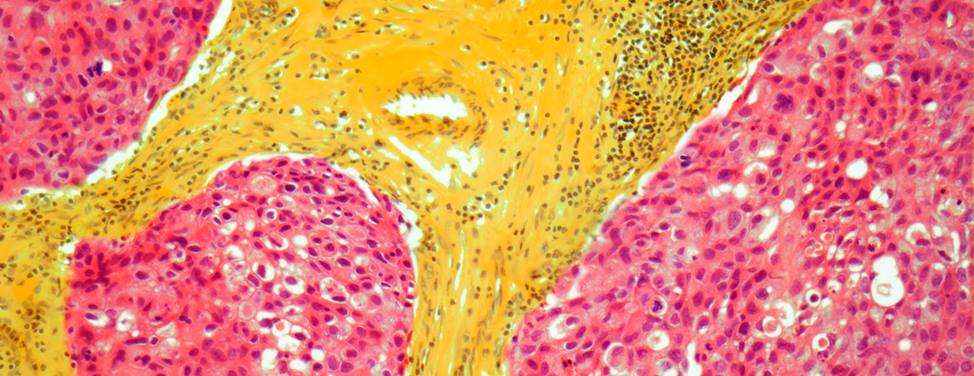
I Have a Lump or Abnormal Mammogram
At the UCSF Carol Franc Buck Breast Care Center, we understand that waiting to find out what an abnormal mammogram or breast lump means can be a very stressful time for many women. Therefore, we have a number of programs, resources and educational materials that we hope will help to relieve some of this stress and anxiety.
Same Day Assessment Program
The Same Day Assessment program is designed to diagnose and evaluate women and men with breast lumps and abnormal mammograms. Our goal is to coordinate and shorten the breast cancer diagnostic process for patients. The diagnostic team consists of surgeons who specialize in diagnosis and treatment of breast problems, a pathologist specializing in fine needle aspiration and breast disease diagnosis, a radiologist specializing in breast imaging, and nurse practitioners specializing in breast cancer and teaching how to do breast self-exams. The Same Day Assessment program is coordinated by a nurse who screens patients for the program, obtains any mammogram films done outside of UCSF Medical Center and arranges any necessary tests or procedures.
Education Materials
At the UCSF Carol Franc Buck Breast Care Center, we hope to provide you with information and support that will enable you to experiment and to explore ways of feeling better that best match you and your needs. Below you will find links to some educational information that is applicable to your particular situation. In addition further information can be gathered at our UCSF Cancer Resource Center or by talking with your doctor.
- Breast Anatomy
- Breast Cancer Biology
- Breast Cancer Sign and Symptoms
- Breast Cancer Diagnosis
- Imaging:
- Mammography
- Ultrasound
- Magnetic Resonance Imagery
- Biopsy:
- Treatment Options
Continue readingClinical Trials
Clinical trials are formal, controlled protocols designed to test the effectiveness of new treatments, including novel drugs, types of intervention or combinations of therapy. If you are interested in obtaining more information on specific breast cancer clinical trials offered at UCSF Medical Center, please visit the clinical trial section on the UCSF Breast Care Center website. You also can visit the National Cancer Institute's CancerNet, where you will find access to PDQ, the NCI-sponsored database of clinical trials nationwide.
Note: The clinical protocols listed here are presented as an educational service to doctors and patients; they should not be interpreted as providing medical advice nor be used for the diagnosis or treatment of cancer or any other health problem. Enrollment is based on satisfying eligibility criteria; final determination for inclusion in a study is made solely at the discretion of the principal investigator.
Diagrams for Abnormal Mammogram and Abnormal Lump
View Diagram of Abnormal Mammogram
Different services and information are needed at different points in the wide spectrum of breast health care and breast cancer treatment. We have created the above maps to serve as an example of a general path of diagnoses and treatment in order to help you to better understand your own individual experience. While there are common pathways to screening, diagnosis and treatment within breast care and breast cancer, you must be aware that your individual path may differ from that presented here. It is important to discuss the details of your individual story with your doctor.
Navigating Your Path to Breast Care:
- Navigating Your Path to Breast Care: I am Concerned About Breast Cancer
- Navigating Your Path to Breast Care: I Have a Lump or Abnormal Mammogram
- Navigating Your Path to Breast Care: I Am Newly Diagnosed With Breast Cancer
- Navigating Your Path to Breast Care: I Have Metastatic Breast Cancer
- Navigating Your Path to Breast Care: I Am in Follow-Up
- Navigating Your Path to Breast Care: I Would Like a Second Opinion
UCSF Health medical specialists have reviewed this information. It is for educational purposes only and is not intended to replace the advice of your doctor or other health care provider. We encourage you to discuss any questions or concerns you may have with your provider.




















